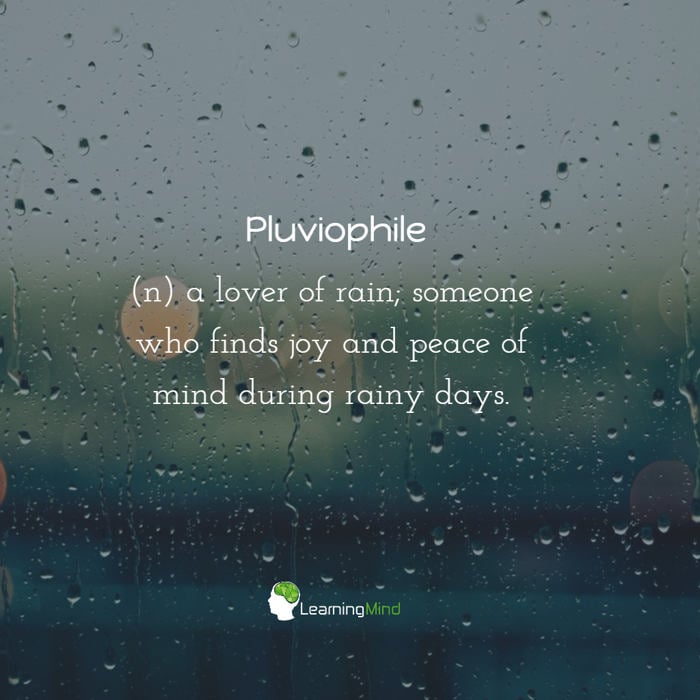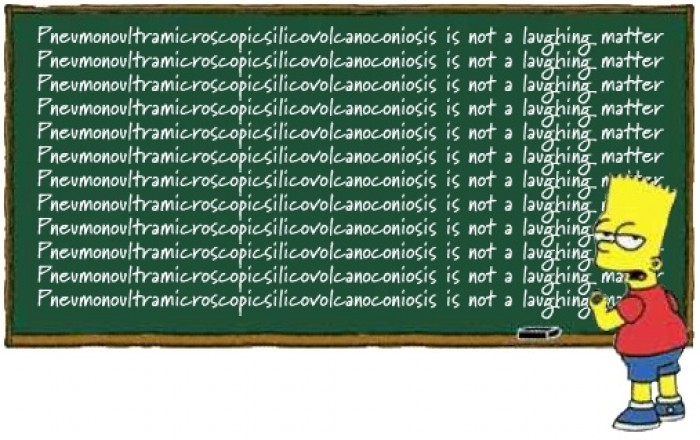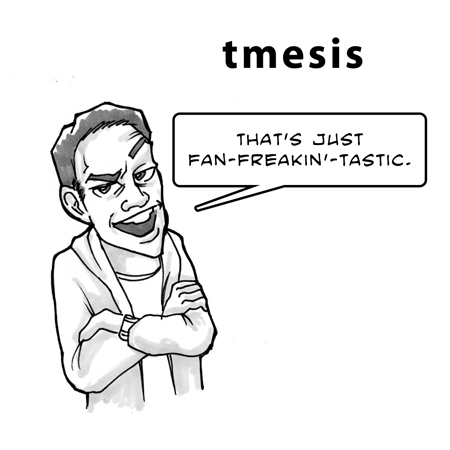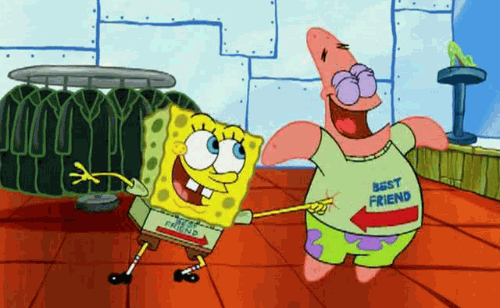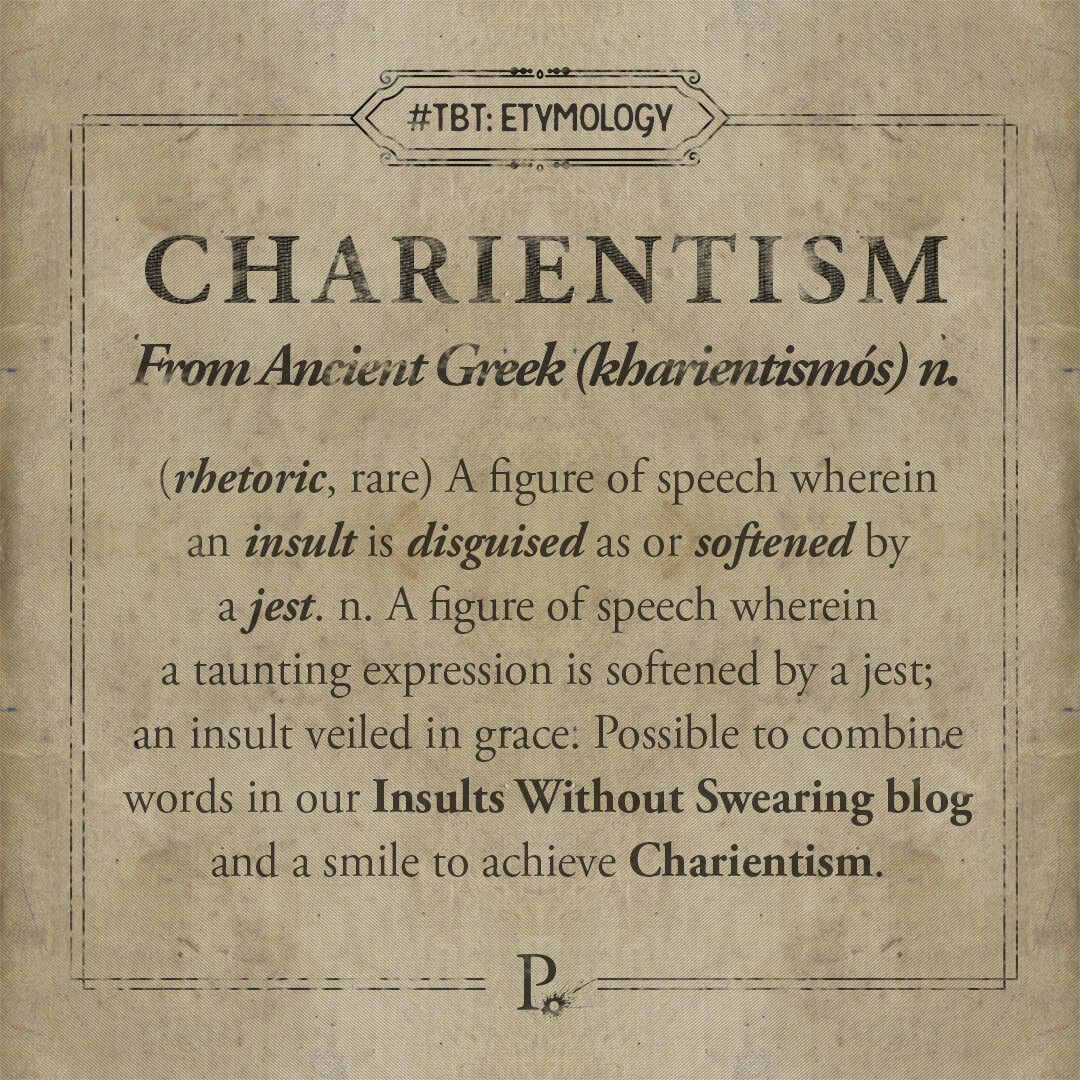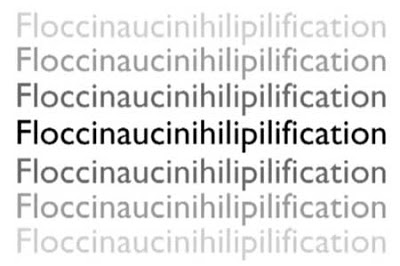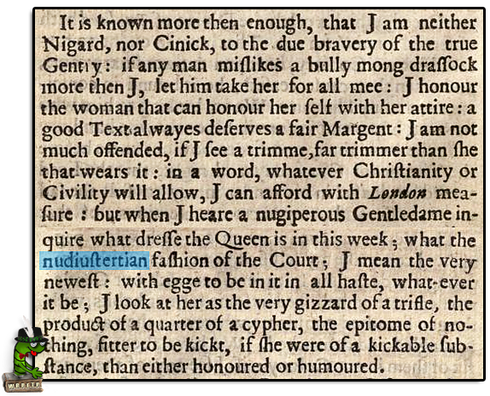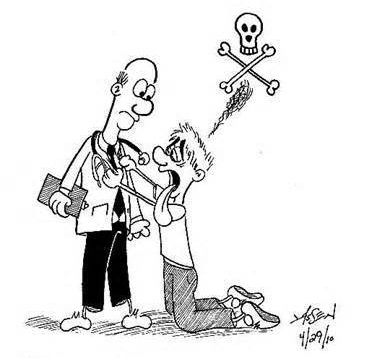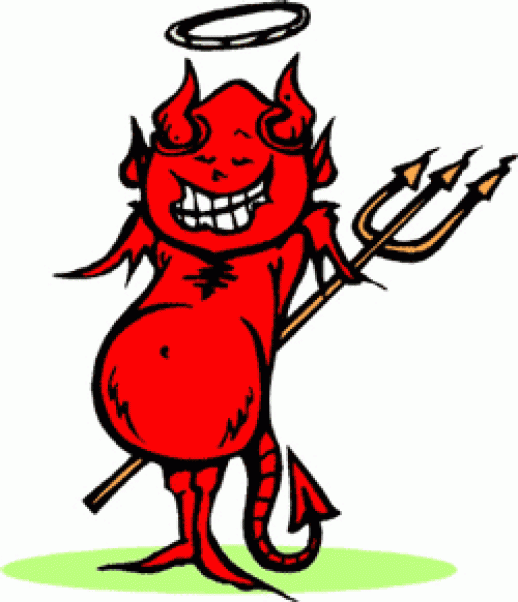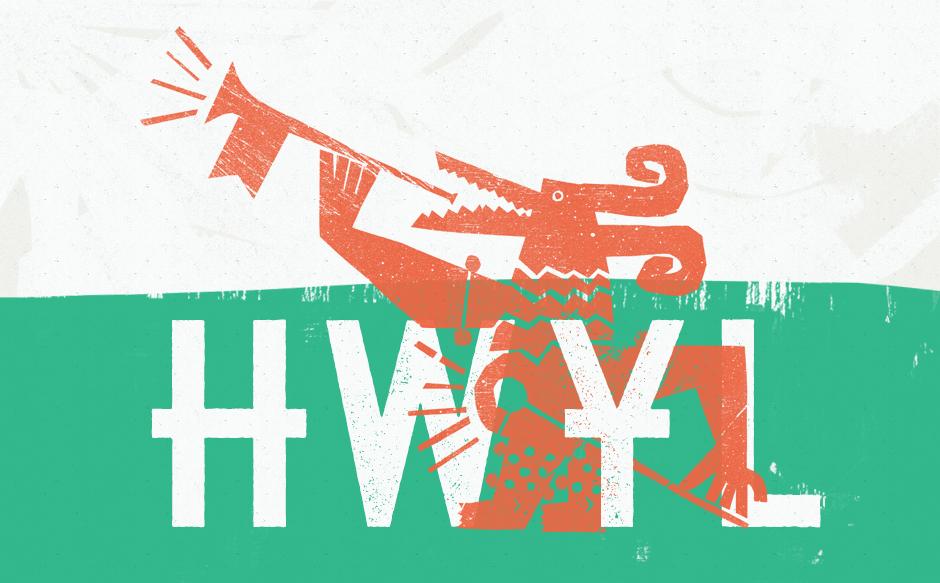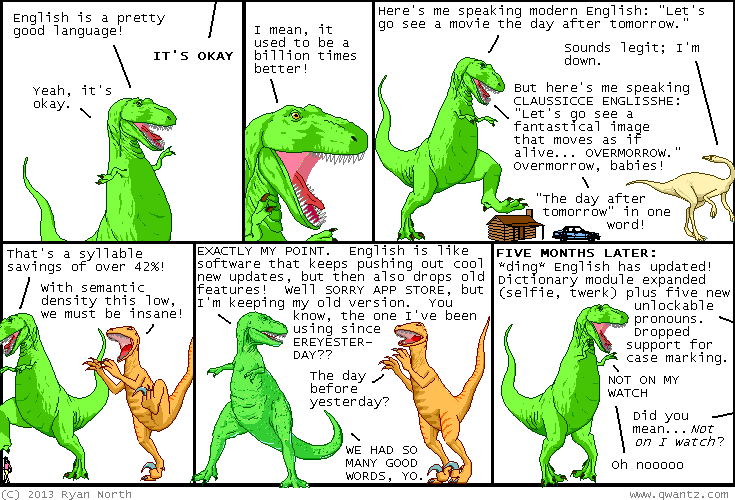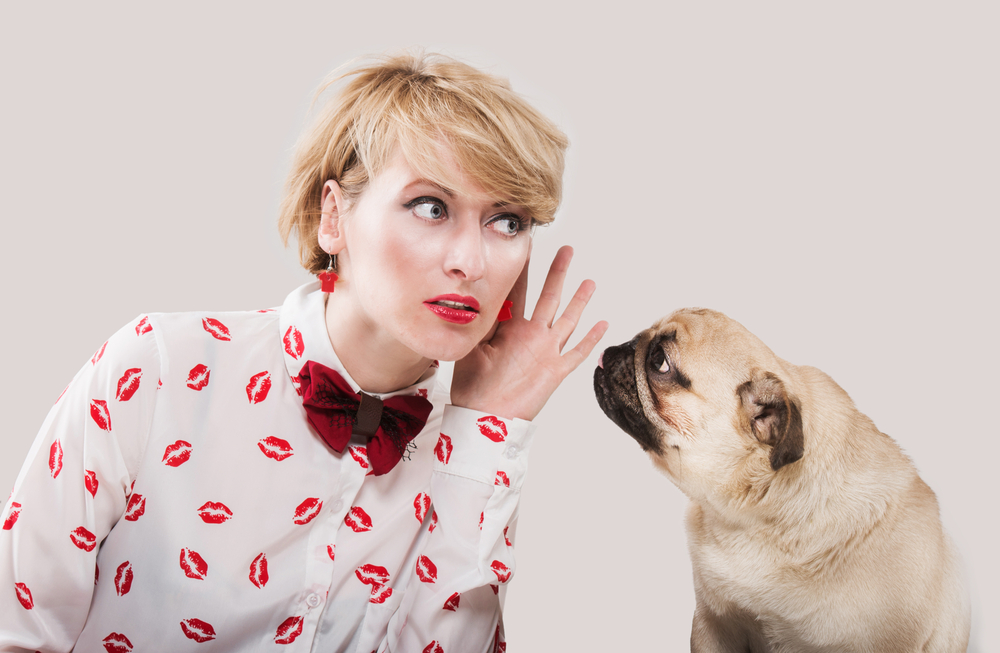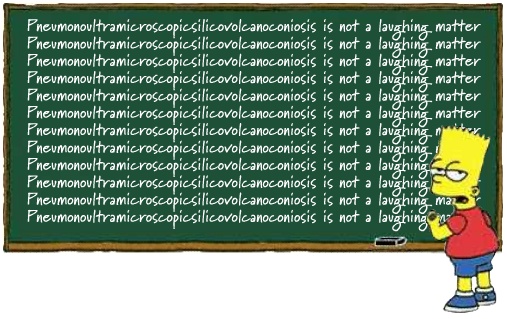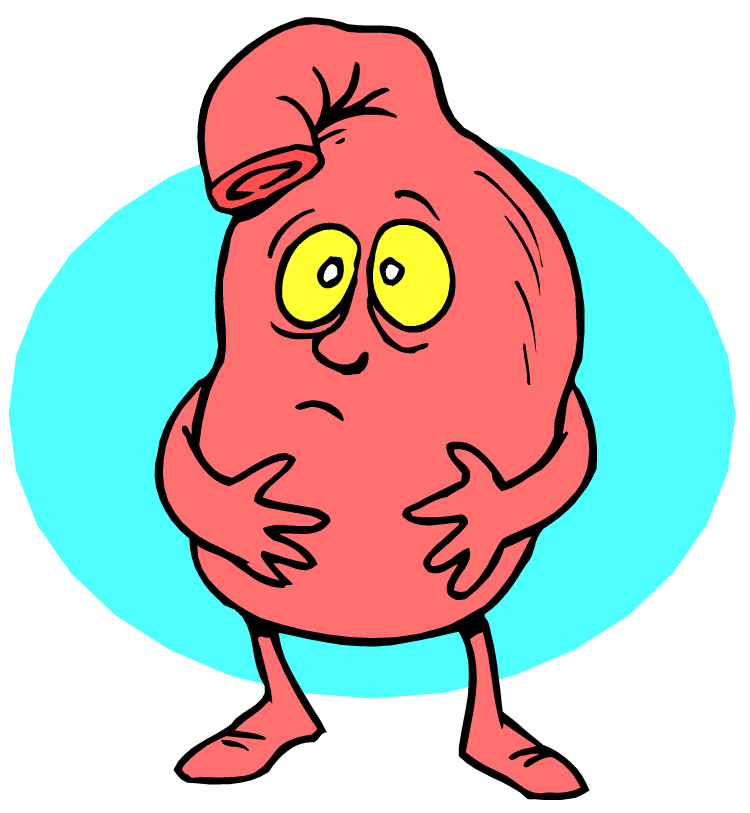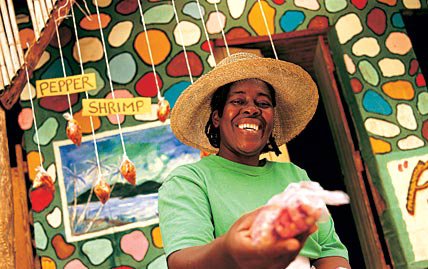
By
Last updated:
January 7, 2023
Learning English is not always easy. English is especially known for having a crazy vocabulary that can make things tricky for learners.
Even if you’ve mastered all the important grammar rules, slang words and idioms, weird English words come along and can still leave you feeling a bit confused!
Lucky for you, this post will introduce you to 15 weird English words that you should know!
Contents
- 1. Kerfuffle (kəˈfʌf(ə)l)
- 2. Hullaballoo (ˌhʌl.ə.bəˈluː)
- 3. Cacophony (kəˈkɒf(ə)ni)
- 4. Ragamuffin (ˈraɡəmʌfɪn)
- 5. Whippersnapper (ˈwɪpəsnapə)
- 6. Gobbledygook (ˈɡɒb(ə)ldɪˌɡuːk)
- 7. Gibberish (ˈdʒɪb(ə)rɪʃ)
- 8. Poppycock (ˈpɒpɪkɒk)
- 9. Discombobulate (ˌdɪskəmˈbɒbjʊleɪt)
- 10. Flummox (ˈflʌməks)
- 11. Curmudgeon (kəːˈmʌdʒ(ə)n)
- 12. Lackadaisical (ˌlakəˈdeɪzɪk(ə)l)
- 13. Woebegone (ˈwəʊbɪɡɒn)
- 14. Lollygag (ˈlɒlɪɡaɡ)
- 15. Frankenfood (ˈfraŋk(ə)nfuːd)
Download:
This blog post is available as a convenient and portable PDF that you
can take anywhere.
Click here to get a copy. (Download)
1. Kerfuffle (kəˈfʌf(ə)l)
Kerfuffle (noun) has been around since the early 1800s and probably came from either Scottish Gaelic or from Celtic Irish, the languages that were used historically in Scotland and Ireland.
It means to make a fuss or a bother, usually when people have different points of view.
What’s all the shouting for? Why are you making such a kerfuffle?
2. Hullaballoo (ˌhʌl.ə.bəˈluː)
“Did you hear all that hullaballoo in the office today?”
A word that really sounds like what it means, hullaballoo (noun) is the loud noises and shouting that people make when they’re angry.
It’s been part of the English language since the middle of the 18th century.
3. Cacophony (kəˈkɒf(ə)ni)
Another word related to noise, a cacophony (noun) is a mixture of horrible sounds. Imagine birds screeching, alarm bells ringing and babies screaming… and you’ve got yourself a cacophony!
You may already know that words that end in phone or phony are related to sound in some way. Cacophony comes from a Greek word made up from kacos (bad) and phone (sound). It entered English in the mid 1600s.
4. Ragamuffin (ˈraɡəmʌfɪn)
Ragamuffin (noun) comes from the English that was used during the Middle Ages.
You’ve probably heard the word rag, right? A dirty and scruffy piece of old cloth. So it’ll make sense to know that a ragamuffin is a person who wears dirty and scruffy clothes – clothes that are just like rags!
It’s usually used for children, and you may also sometimes hear it used to describe scruffy-looking animals.
I send my children to school dressed smartly, and they come home like little ragamuffins!
5. Whippersnapper (ˈwɪpəsnapə)
Nothing to do with whips or snaps, say whippersnapper (noun) quickly and you’ll create a funny and harsh sound!
Although this term is a little bit old-fashioned today, it’ll certainly make people smile if you use it.
It’s been part of the English language since the 17th century and is a mixture of two terms. One referred to a lazy person who had no ambitions. The other term was used for young people who lived on the street and did bad things, like stealing.
The meaning has changed over the years, and today it’s used for a young person who’s too confident and perhaps a little cheeky! It’s a perfect word to use for an inquisitive child who just can’t stop questioning and correcting their parents!
6. Gobbledygook (ˈɡɒb(ə)ldɪˌɡuːk)
Close your eyes for a second and think of a turkey. What sound does it make? Does it sound something like “gobble, gobble, gobble”? That’s exactly where this word came from!
Created from the meaningless sound that turkeys make, gobbledygook (noun) was originally an American English word. It was created in the 1940s to mean words that are nonsense or have no meaning.
It also describes when people use too many technical words and so other people can’t understand what they’e saying.
The Director was talking a load of gobbledygook in that meeting. I have no idea what he wants!
7. Gibberish (ˈdʒɪb(ə)rɪʃ)
If someone is talking gobbledegook they’ll also be talking gibberish!
Gibberish (noun) means the same: nonsense words and phrases that sound like English but have little meaning.
Gibberish is an older term than gobbledegook. It’s been in use since the mid 16th century. It’s not known where the word came from, but many people believe it was taken from either a similar Spanish or Swedish word.
8. Poppycock (ˈpɒpɪkɒk)
Have you ever listened to somebody trying to talk about something that they know absolutely nothing about? You know that what they’re saying is completely untrue, yet they insist on continuing to talk?
It’s highly likely that they’re talking poppycock! Poppycock has nothing to do with poppies (a type of flower) or cocks (a male bird and a slang term for a man’s intimate body parts!)
Poppycock actually came from the Dutch word pappekak, which is made from pap (soft) and kak (poop!). It’s been part of English since the 1800s.
What a load of poppycock!
9. Discombobulate (ˌdɪskəmˈbɒbjʊleɪt)
Mainly used in North American English, if somebody’s talking lots of gibberish, gobbledegook and poppycock, they may be trying to discombobulate (verb) another person. You may feel a little discombobulated (adjective) by all these strange words!
Confused? You should be! Discombobulate means to confuse!
It’s been used since the mid 19th century, and is mainly used in a funny way.
What’s the matter? You look a little discombobulated!
10. Flummox (ˈflʌməks)
If you’re now feeling very discombobulated you are also flummoxed (adjective)!
To flummox a person (verb) means to confuse them a lot.
It came into the English language in the middle of the 19th century. It was taken from dialects used in some parts of the UK.
11. Curmudgeon (kəːˈmʌdʒ(ə)n)
Are you trying to find just the right word for someone who’s very bad-tempered and grumpy? Curmudgeon (noun) might be just the word that you’re looking for!
Dating back to at least the 16th century, this word has been used for a long time.
I don’t like our English teacher… he is a real curmudgeon!
12. Lackadaisical (ˌlakəˈdeɪzɪk(ə)l)
How about if you want to describe that someone’s lazy and has no enthusiasm or determination? Lackadaisical (adjective) would be perfect in this situation!
It’s been in use since the 1700s, although where it came from isn’t clear.
My sister has no job and is doing nothing to find one. She is so lackadaisical.
13. Woebegone (ˈwəʊbɪɡɒn)
Another terrific adjective. Can you guess what a woebegone person looks like?
It’s easy to break this word into two parts – woe (extreme sadness) and begone (an old-fashioned word that means surrounded by something).
So, woebegone means “surrounded by sadness.” It comes from Middle English, English that was used during the Middle Ages.
Why do you look so woebegone?
14. Lollygag (ˈlɒlɪɡaɡ)
What a fantastic verb: to lollygag! Nothing to do with lollies or gags, it actually means to be idle and lazy or to waste time.
It’s most common in the USA. It’s not unusual to hear parents shout to their children to “stop lollygagging” – now you’ll know what they’re talking about!
The word has been used since the 1800s.
15. Frankenfood (ˈfraŋk(ə)nfuːd)
Very new when compared to all the others on the list, the word Frankenfood (noun) came into existence in the 1990s.
It’s used informally for genetically modified (GM) foods. GM foods are those that have been scientifically altered in some way, that haven’t grown naturally.
Frankenfood is a combination of the words Frankenstein and food.
I’m not eating there! They use Frankenfoods!
While these are all great examples of weird English words, they are not the only ones out there. To find more strange words, you can expose yourself to native English and naturally come across some of those funky words.
Try reading books, watching movies or listening to music in English. All of these are great ways to pick up new vocabulary.
You can also try FluentU which intentionally introduces you to English as it’s actually used through authentic videos like movie clips, music videos etc.
There are also learning tools like interactive subtitles, quizzes and flashcards that will help you learn. FluentU is available on iOS and Android.
There’s no need to feel discombobulated if you hear gibberish – learning new words can be easy once you start!
Download:
This blog post is available as a convenient and portable PDF that you
can take anywhere.
Click here to get a copy. (Download)
Some expressions in English sound plain weird. Discover fifteen English words that you had never heard before.
Among the million words that the English language supposedly includes, some of them sound very strange, others words are written in an unexpected way. Of course, it will become easier to write an essay with the most unusual words if you know how long a 500 words essay is. Moreover, these words are never taught in an English language class. Here are the fifteen most unusual words you can find in the English language.
1. Serendipity
This word appears in numerous lists of untranslatable words and is a mystery mostly for non native speakers of English. It refers to a happy and unexpected discovery or event.
2. Gobbledygook
The word was invented by Maury Maverick —a United States politician— and was first used in 1944 when he gave a speech to describe a text riddled with official jargon and extremely complex sentence structures.
3. Scrumptious
This word is practically an onomatopoeia and refers to a delicious dish.
4. Agastopia
If you are familiar with ancient Greek roots, the meaning of this word should be clear… It expresses fascination or love (we could even speak of fetishism without mincing words, much less in an article like this) for a particular part of the human body. It first appeared in this book: Depraved English. You may not find it in a dictionary.
5. Halfpace
It is a landing, certainly, but not just any landing. It refers to that small landing at the top of a flight of stairs where you have to turn and take another flight of stairs whether going up or down.
6. Impignorate
Why make life difficult when it could be easy? One could say “to mortgage” or “to hypothecate”, but not “to impignorate”. This word certainly has all the charm of another era that truly makes you want to pawn something…
7. Jentacular
When you are getting out of bed in the morning, if you are offered a “jentacular” cup of tea, don’t be offended: it means just about anything (in this case, tea) related to breakfast.
8. Nudiustertian
To make it simple, the word nudiustertian refers to two days ago (that is to say the day before yesterday). Unfortunately, it has fallen into disuse, although it is far more melodious than the day before yesterday.
9. Quire
You surely must have, at one time or another, wanted to order in English 24 or 25 sheets of paper without having to say “I would like 24 or 25 sheets of paper, please”. Right? Problem solved: Ask for a quire.
10. Yarborough
Another particularly useful term for daily life, especially if you play bridge, in which case you may already be familiar with it. At all events, you probably know that unpleasant feeling of having a hand where no card is higher than 9. That’s a yarborough hand.
11. Tittynope
Let us be precise: the scattering of crumbs left on one side of the plate, the few grains of rice sitting at the bottom of the bowl, the few drops remaining in the glass, are not mere leftovers and dregs. They are tittynopes.
12. Winklepicker
If someday you ever manage to prepare mollusc skewers using pointy shoes, this will illustrate perfectly the sense of a winklepicker. Not clear about this yet? Winklepickers are shoes with such a sharp point that they evoke the utensils used to prise winkles from their shells.
13. Ulotrichous
It’s always the same story: men and women who are ulotrichous don’t want it this way while those who are not, would like it to be this way. Of course! Ulotrichous refers to people with curly hair.
14. Kakorrhaphiophobia
If you suffer from this, then you would very much rather not have this word appear in a spelling bee, since it describes the fear of failure.
15. Xertz
Who would have imagined it? This is not the name of the villain in a bad science fiction movie, but the act of gulping something down in haste. Another word that you may not find in a dictionary.
Discover our translation agency.
As long as I can remember, I’ve had a love of the English language. I think it comes from my father. Whenever I came across unusual words, he would treat it as an adventure of sorts.
‘Look it up’, he’d say, all the while giving me clues as to the meaning of the word. Now, when I don’t know what a word means, I can hear my late father’s words in my ear and I’ll look up the word in question. Some of my favourite words include loquacious (talkative), pulchritude (physical beauty), and bucolic (pleasant countryside).
Here are some unusual words in English. You may already know what they mean, or, like me, you might be surprised.
-
Acnestis
No, this isn’t associated with spotty teenagers. In fact, we’ve all suffered from a spot of acnestis at some point in our lives. It’s the part of the back between the shoulders that you can’t reach to scratch.
-
Agastopia
This is one of those unusual words that looks as if it means one thing but in actual fact, means the opposite. When we’re aghast at something, we’re horrified. However, this word means a fascination or love of a particular part of the human body.
-
Clinomania
I often have clinomania, especially in the morning as I’m a bit of a night owl and struggle to get up. If you haven’t already guessed, clinomania means an overriding desire to stay in bed because you love sleeping.
-
Cromulent
When I first saw this word, I thought it sounded like a cross between one of those New York bakery mash-ups. You know the one I mean, the cronut. However, while you might not find it in a dictionary, it first appeared in an episode of the Simpsons’ and means adequate or fine.
-
Defenestration
Defenestration comes from the French word for window ‘la fenêtre’ and means to throw out of a window. Defenestration was first thought to be used to describe events in Prague, 1618, when angry Protestants threw out two Catholic officials from a window, leading to the Thirty Years’ War.
-
Evancalous
Have you ever cuddled up to your partner and thought to yourself, ‘This feels so nice I could stay here forever’? That’s exactly what evancalous means. It means something that is pleasant to embrace. Just don’t ask me to tell you how to use it in a sentence!
-
Halfpace
Now, this is one of those unusual words that owners of certain types of houses might know. It is a small landing in a house where you have to turn at some point to walk up another set of stairs.
-
Hiraeth
This is a beautiful Welsh word that will resonate with millions of refugees across the world. It means feeling homesick for a home you can never go back to.
-
Incandescence
Now I always thought that incandescence meant light from a certain source, like a candle. But in actual fact, it is the particular light that is produced from extremely high temperatures.
-
Ineffable
I think that in my head I must have confused this word with affable and thought it must have something to do with being pleasant. Actually, it means indescribable or beyond words.
-
Jentacular
Are you the sort of person that likes to eat breakfast as soon as you get out of bed? This is an unusual word and not much used these days, but it pertains to breakfast and comes from the Latin word jentaculum, meaning breakfast.
-
Kakorrhaphiophobia
Lord only knows how to pronounce this unusual word, but thanks to the ending, we already know it is a fear of something. It is an all-consuming fear of failure.
-
Limerence
This isn’t some kind of Irish poetry, although you could use the word in a sonnet or two. It means a person’s state of mind resulting from a romantic infatuation including fantasies and obsessive thoughts about forming a relationship.
-
Meritocracy
If only all governments were meritocracies, I’m sure we’d see better decisions in the long run. Why? Because meritocracy is a society governed by people elected by their experience and ability.
-
Nudiustertian
It’s up to you to decide whether it is easier to say ‘the day before yesterday’ or ‘nudiustertian’. It is an Armenian word that simply means two days ago.
-
Petrichor
If you are one of those people that go outside after a thunderstorm and breathe in the air, then you love petrichor. Petrichor is that metallic, earthy smell left after the rain.
-
Phosphenes
You might think that phosphenes are some sort of chemical you find in food additives, but the truth is stranger than that. They are the light or coloured spots you produce in your eyes when you put pressure on them. For example, when you rub them when you’re tired.
-
Pluviophile
Word lovers know that any word ending with ‘phile’ means a lover of, and ‘pluvio’ relates to rain. So a pluviophile is someone who loves the rain.
-
Sonder
I love this word because I didn’t realise there was a word for the feeling I got occasionally. Sonder is realising that everyone, including random strangers in the street, is leading as full and complex lives as you are.
-
Tittynope
Ooh, matron! Don’t worry. This isn’t some leftover phrase from the Victorian era to describe a saucy barmaid with a buxom offering. In fact, it’s far more commonplace and ordinary. Tittynopes are the leftovers of a meal or a snack. The last drops left in a glass, or the few crumbs of a cake, a couple of beans left on a plate.
-
Ulotrichous
Some women pay a lot of money to be ulotrichous whereas others pay a lot not to be. You may have guessed from the ‘tricho’ part of the word that it refers to hair in some way and you’d be right. Ulotrichous means people who have curly hair.
-
Xertz
This is a great word to remember for any word game where you have an x and a z left to play. It means to gulp something down quickly and is pronounced ‘zerts’.
Do You Know Any More Unusual Words?
Well, those are my favourite unusual words, for now anyway! If you have some, I’d love to hear them!
References:
- www.merriam-webster.com
- www.lexico.com
- Author
- Recent Posts
Sub-editor & staff writer at Learning Mind
Janey Davies has been published online for over 10 years. She has suffered from a panic disorder for over 30 years, which prompted her to study and receive an Honours degree in Psychology with the Open University. Janey uses the experiences of her own anxiety to offer help and advice to others dealing with mental health issues.
Copyright © 2012-2023 Learning Mind. All rights reserved. For permission to reprint, contact us.
Language isn’t just a medium of communicating your thoughts, feelings, and ideas. It’s a whole different world in itself. Language shapes our perception, personality, and passion.
There’s a word for almost every feeling that you feel. There’s a word for almost everything that you see. There’s a word for almost everything you can think of. Every word for sure carries a certain beauty and uniqueness describing really incredible things.
More than a million words are there in the English language. Many of them have faded, many of them aren’t much used. And nearly 171,476 words are commonly used in the current scenario. The infrequently used words belong to psychology, biology, medicine, astronomy, and other fields. They remain in a state of vernacular obscurity because of their extraordinary specificity.
Neither heard nor spoken on a regular basis, these are 25 fascinating rare words that are a delightful addition to your vocabulary and also appealing to the senses and the English language.
1. Tmesis (tuh-mee-sis)
Source = Amazonaws
An unusual word with an unusual meaning, ‘tmesis’ is the only word in English that begins with ‘tm-’.
What it means: Insertion of one or more words to make a compound word
Etymology: The word ‘tmesis’ originates from the Greek tmesis «a cutting», related to temnein which means «to cut».
Example sentences:
- ‘to’ inserted in ‘update’ makes for ‘up-to-date’
- ‘so’ inserted in the middle of ‘whatever’ makes for ‘whatsoever’
- ‘Whole’ inserted in the ‘another’ makes for ‘a whole nother’
2. Syzygy (siz-i-jee)
Source = Giphy
The word ‘syzygy’ is as rare, beautiful and unique as is its astronomical occurrence. This is the only word in all of English to have three Y’s.
Moreover, other than astronomy, it has different meanings in poetry, genetics, psychology, medicine, mathematics, zoology and astronomy. Bonus fact is that it’s also one of the high-scoring Scrabble words.
Different meanings in different fields:
- Astronomy: An alignment of three celestial bodies more commonly the Sun, Earth, and Moon akin to an eclipse.
- Genetics: The pairing of chromosomes in meiosis.
- Mathematics: A relation between generators of a module.
- Medicine: The fusion of some or all organs.
- Poetry (in classical prosody): The combination of two metrical feet into a single unit.
- Psychology: A quintessential pairing of contrasexual opposites which symbolizes the communication of the conscious and unconscious minds.
- Zoology: The association of two protozoans for the purpose of asexual exchange of genetic material.
Etymology: The word derives via late Latin from Greek suzugia «yoke of animals, pair, union of two, conjunction» from suzugos «to yoke together». It is the compound form of syn «together» + zygon «yoke».
Example sentences:
- The moon is at syzygy when full.
- The planets were aligned in syzygy. (3.1)
3. Hydroxyzine (hahy-drok-suh-zeen)
Source = Nih
Hydroxyzine is the only word to have X, Y, Z back-to-back and in-order. The first known use of this medicine was back in 1956. It can help you relieve tension, irritability and anxiety.
Meaning: A tranquilizing drug used to cure anxiety and motion sickness.
Etymology: hydroxy- + (pipera)zine
Example sentence: Do not use Hydroxyzine for alcohol withdrawal!
4. Philodox (FIL-uh-doks)
Source = Pinimg
‘Phil-’ is the root word used to define love for something and ‘dox’ means beliefs and praise. So someone who loves his own opinions is a philodox.
What it means: A dogmatic person who loves his or her own opinions.
Etymology: From Middle French philodoxe, from Ancient Greek (philódoxos, “opinion-loving”). It is a compound of (phílo-, “philo”) + (dóxa, “glory; opinion”).
Example sentence: Once again, it was a joy to see and meet those that really make a difference in the security market, believe me, life isn’t short of philodox characters… (Security News Desk)
5. Dextrosinistral (deks-tro-sin-is-tral)
Source = Whstatic
Lefties or left-handed people are often asked (and sometimes forced) to switch their handedness and become a right hander. Those who’re trained to become one are called ‘dextrosinistral’.
Meanings:
1. Moving or extending from right to left
2. A natural left-handed person trained to use the right hand (3.2)
Etymology: (dextro- + sinistral) From the Latin ‘dexter’ meaning right and ‘sinister’ meaning left.
Example Sentence: The maximum deformation was mostly in the dextrosinistral direction.
6. Lalochezia (lah-loh-KEY-zee-uh)
Source = Oxfamblogs
When you’re in a state of extreme anger and spew filthy or indecent words from your mouth, the emotional relief you gain by doing that is called lalochezia.
Meaning: Emotional relief gained using expletives or abusive language (3.3)
Etymology: From the Greek ‘lalia’ meaning speech and ‘chezo’ meaning to relieve oneself.
Example Sentence: But you can build up a tolerance to lalochezia—the more you swear, the less it helps. (Greatist)
7. Gargalesthesia (gar-guhl-es-thee-zee-yah)
Source = Giphy
It’s the sensation you feel when your sensitive areas are ticked really hard and repeatedly.
Meaning: The sensation caused by being tickled.
Etymology: A compound of the Greek ‘gargalos’ meaning itching and ‘aesthesia’ or ‘esthesia’ meaning ability to perceive sensations.
Example sentence: Gargalesthesia has been known to cause death when prolonged.
8. Factotum (fak-toh-tuh m)
Source = Modworkshop
A factotum is someone who possesses diverse traits and serves different responsibilities. And that makes him/her jack of all trades.
Meanings:
- A person having many diverse activities or responsibilities.
- A general servant.
- A jack of all trades.
- An individual employed to do all kinds of duties.
Etymology: From the Latin ‘facere’ meaning to do and ‘totum’ meaning everything. (3.4)
Example sentence: By day three, it was the department’s triumph and I was a factotum. (Jack Kerley, THE HUNDREDTH MAN)
9. Charientism (ka-ri-yent-izm)
Source = Theprose
When you’re having a group chat and don’t understand whether something was a quip or a disdain, it’s charientism. It is an artfully concealed insult.
Meaning: A figure of speech wherein an insult is disguised as or softened by a jest.
Etymology: From Ancient Greek (kharientismós)
Example sentence: I’d offer up a charientism but I’m not polite enough to bother masking my dislike for people.
10. Manque (man-que, ma-nq-ue)
Source = Blogspot
When you feel unfulfilled or frustrated for not living up to a certain expectation or ambition, it’s called manque.
Meaning: would-be; unfulfilled realizing an ambition or capability due to the vagary of circumstance, some inherent flaw, or an often uncertain constitutional lacking of some kind.
Etymology: From French manqué (to lack)
Example sentence: The manager is an actor manqué.
11. Floccinaucinihilipilification (FLOK-si-now-sin-ih-HILL-ip-il-IF-i-CAY-shun)
Source = Englishbookgeorgia
Damn hard to pronounce, this 29-letter-long word happens to be one of the longest words in the English language. With the meaning ‘categorizing something as valueless, the humorously paradoxical fact about the word is that it is quite a useless word in itself; which is hardly used anywhere except as an example of a long word.
Meaning: the action or habit of estimating something as worthless (3.5)
Etymology: From a combination of four Latin words: flocci, nauci, nihili, pili (meaning ‘hold at little value’)
Example sentence: Floccinaucinihilipilification is one of a number of very long words that occur very rarely in genuine use.
12. Nudiustertian (noo-dee-uhs-TUR-shuhn)
Source = Wordsandphrasesfromthepast
According to the Oxford English Dictionary, the word ‘nudiustertian’ has been mentioned only in the very popular work ‘The Simple Cobbler of Aggawam in America’ written by Nathaniel Ward.
Meaning: very recent, the day before yesterday
Etymology: From Latin ‘nudius tertius’, from phrase nunc dies tertius est meaning ‘today is the third day’. (3.6)
Example sentence: When I hear a‥Gentledame inquire‥what [is] the nudiustertian fashion of the Court; I mean the very newest. (The Simple Cobbler of Aggawam in America)
13. Pandiculation (pan-dik-oo-lay-shun)
Source = Somaticmovementcenter
Whenever you feel drowsy or weary, just stretch your limbs and neck and accompany it with yawning. This simple and effective movement is called pandiculation. It helps to reboot your brain’s sensation and also restores complete muscle function.
Meaning: yawning and stretching (as when first waking up)
Etymology: From Latin pandiculari, from pendere to stretch
Example sentence: Instances of pandiculation in the audience suggests the show isn’t going well.
14. Valetudinarian (val-i-too-duh-NAYR-ee-uhn)
Source = Digopaul
Someone who is constantly obsessed about his or her health is called a valetudinarian. It is used as both a noun and an adjective.
Meaning: a sickly or weak person, especially one who is constantly and morbidly concerned with his or her health
Etymology: The word comes from Latin valētūdinārius, from valetudo (“state of health, health, ill health”), from valere (“to be strong or well”)
Example sentences:
1. A «valetudinarian» is a 10-dollar word for someone who is sickly.
2. The valetudinarian habit of discussing his health had grown on Rose…
15. Schadenfreude (shah-den-froydah)
Source = Dailydubie
When someone feels malicious enjoyment from observing someone else’s misfortune, that feeling is schadenfreude.
It is the synonym of another rare word ‘epicaricacy’. This word became popular in English in the late 20th century. Its usage was seen in an episode of ‘The Simpsons’.
Meaning: satisfaction or pleasure felt at someone else’s misfortune malicious enjoyment derived from observing someone else’s misfortune
Etymology: The word was borrowed from German Schadenfreude (“joy in the misfortune of others”), from Schaden (“damage, harm, mishap”), and Freude (“joy”).
Example sentence: And Mr. Henry’s arrival suggests the schadenfreude is over.
16. Chthonic (thon-ik)
Source = Publicationcoach
What dwells beneath the earth’s surface is chthonic.
Meaning: of or characteristic of the mythological underworld, subterranean (3.7)
Etymology: From Ancient Greek khthonios (of the earth), from khthōn, earth
Example sentence: The young pantheon had remanded their elders to the role of smoldering, chthonic gods……
17. Hwyl (HU il)
Source = WordPress
That’s a stirring and motivational energy that one experiences when he/she is all pumped up and determined to achieve a particular goal or ambition.
Meaning: emotional fervor (as in the recitation of poetry), a melodic chanting style of Welsh preaching.
Etymology: Welsh
Example sentence: We will never lack hwyl on the second Gwlad of an international day anthem…..
18. Lethologica (Leth-Oh-LOGE-ikuh)
Source = WordPress
If you are unable to recall the exact word for something, you have a lethologica.
Meaning: the inability to remember the accurate word for something
Etymology: Carl Jung coined this word from the Ancient Greek lḗthē meaning forgetfulness and lógos meaning word.
Example sentence: You might have trouble recalling that lethologica is the inability to remember a word.
19. Overmorrow (oh-vuhr-MOR-oh)
Source = Qwantz
The day that is two days ahead of today is ‘overmorrow’.
Meaning: the day after tomorrow.
Etymology: The word comes from Middle English overmorwe. It is a compound of over + morwe (“morrow”).
Example sentence: ‘Does overmorrow work for you?’
20. Velleity (vuh-LEE-i-tee)
Source = Netdna-cdn
A mere wish with no strong desire to act is called ‘velleity’.
Meanings:
1. The weakest degree of desire or volition.
2. A slight wish with no effort to act.
Etymology: From Medieval Latin velleitās, from Latin velle (“to wish or will”). (3.8)
Example sentence: He felt cast out … divorced from the caprices and the velleities of childhood.
21. Sesquipedalian (ses-kwi-pi-DAYL-yuhn)
Source = Blogspot
A word that is one and a half feet long is called ‘sesquipedalian’.
Meanings:
1. Given to or characterized by the use of long words, long-winded.
2. Having many syllables; polysyllabic. (3.9)
Etymology: The word came into existence in the mid 17th century, 1656 to be precise. It originated from Latin sesquipedalis ‘a foot and a half long,’ from sesqui- (see sesqui-) + pes, ped- ‘foot’.
Example sentence: Anne, that ridiculously sesquipedalian word you just gutturally uttered is a perfect example of why Germans don’t play Scrabble.
22. Borborygmus (bor-buh-RIG-muhs)
Source = Stomachnoises
Being an onomatopoeic word, the word ‘borborygmus’ imitates the annoying, loud gurglings made by the stomach. Chances are you’ve never heard of this word unless you’re a gastroenterologist.
Meaning: rumbling or gurgling sound caused in intestines and stomach by moving fluid or gas (3.10)
Etymology: Originated in the early 18th century, the word was originated from modern Latin, from Greek borborygmos, from borboryzein (to rumble)
Example sentence: Unfortunately sir the other guests are trying to listen to the singer but your borborygmi (plural) are so loud they are interrupting the performance.
23. Doohickey (duːhɪki)
Source = Gstatic
Open your childhood treasure of toys, and you’ll discover so many objects & gadgets whose name you wouldn’t know or recall. Those gadgets are doohickeys.
Meaning: a small object or gadget, especially one whose name the speaker doesn’t know or can’t recall.
Etymology: The word’s origin lies in the 20th century. It is a blend of doodad and hickey.
Example sentence: This garage is filled with electronic parts and other valuable doohickeys.
24. Higgler (higgl-ůr)
Source = WordPress
Someone who goes around selling small items is known as a higgler.
Meanings:
- a person who travels around selling small items; a pedlar.
- a person who haggles or negotiates for lower prices.
Etymology: probably an alteration of haggle
Example sentence: But while she still lived and prospered as a higgler we had to find another helper to fill.
25. Contronym (KAHN-troh-NIM)
Source = WordPress
Also known as contranym or autoantonym, a contronym is a word with two meanings having opposite meanings. For e.g. sanction (meaning both ‘a penalty for disobeying a law’ and ‘official permission or approval for an action’).
Meaning: a word with two opposite meanings
Etymology: a combination of contra- and -onym, on the pattern of synonym and antonym
Example sentence: The word contronym is a recently coined neologism.
Do you also know a rare word in English or any other language? If you do, then do tell us the word with its meaning in the comments section below!

The most unusual words with meaning and example, Among the million words that the English language supposedly includes, some of them sound very strange, others words are written in an unexpected way.
The 20 most unusual words with meaning and example, you’ll ever find in English
1. AGASTOPIA: Admiration of a particular part of someone’s body.
PS, stop staring at my legs! Your agastopia is creeping me out.
2. JENTACULAR: Of or pertaining to a breakfast taken early in the morning, or immediately on getting up.
I took a post-jentacular walk to settle my stomach.
3. CONDUCT: Personal behavior
My administration will continue to insist upon professional conduct from all our employees, regardless of their position in state government.
4. CONVINCE: To move by argument
So I’m willing to work with any leader that comes close to that, who will sit down and listen to me and be open to being convinced that that is where we are right now with the issues.
5. SERENDIPITY: good luck in making unexpected and fortunate discoveries
The arts develop because of aptitude, talent, genius, hard work and serendipity.
6. ULOTRICHOUS: having woolly or crisp hair.
The whole family is has a ulotrichous streak.
7. TITTYNOPE: A small quantity of anything left over, whether a few beans on a dinner plate or the dregs at the bottom of a cup.
Sometimes I wonder if we could put our tittynopes to better use.
8. QUIRE: tablet of paper
I have suggested that it may have been used as a night quire.
9. GOBBLEDYGOOK: incomprehensible or pompous jargon of specialists
I believe that many of my ex-colleagues deliberately use gobbledygookand small print to confuse the public!
10. IMPIGNORATE: pledge, pawn, mortgage.
The proprietor of a moveable subject may lawfully impignorate it for a future as well as for a present debt.
11. KAKORRHAPHIOPHOBIA: fear of failure or defeat.
She suffered an extreme case of Kakorrhaphiophobia.
12. LEVEL: smooth, balanced
On another level, I’m pleased by the many people who have worked for me and who will take these references and put their blend into it.
13. SCRUMPTIOUS: delicious
That was the most scrumptious lunch Ive had in a month of Sundays.
14. XERTZ: to gulp something down quickly and/or in a greedy fashion
As soon as I finished the half marathon I needed to xertz a bottle of water.
15. INSPIRE: encourage, stimulate
The new research shows that 51% of brands used tech-powered collaboration tactics to keep in-house teams motivated and inspired during the pandemic.
16. NUDIUSTERTIAN: of or relating to the day before yesterday
I’d ordered the key on-line for £48 that nudiustertian morning and was not expecting it to arrive until the following week.
17. SCARCE: insufficient, infrequent
The Jews were the subjects of a foreign race and money was scarce.
18. WINKLEPICKER: a shoe with a long pointed toe
The singers Winklepicker boots often feature a Cuban heel.
19. YARBOROUGH: a hand with no card above a nine.
There are good yarboroughs and bad yarboroughs, based on the strength of the spots.
20. HALFPACE: a raised floor or dais or a platform or footpace at the top of steps
Inside the rectangular tower, the halfpace, Renaissance-style, stone stairway climbs six floors.
Post Views: 2,878


